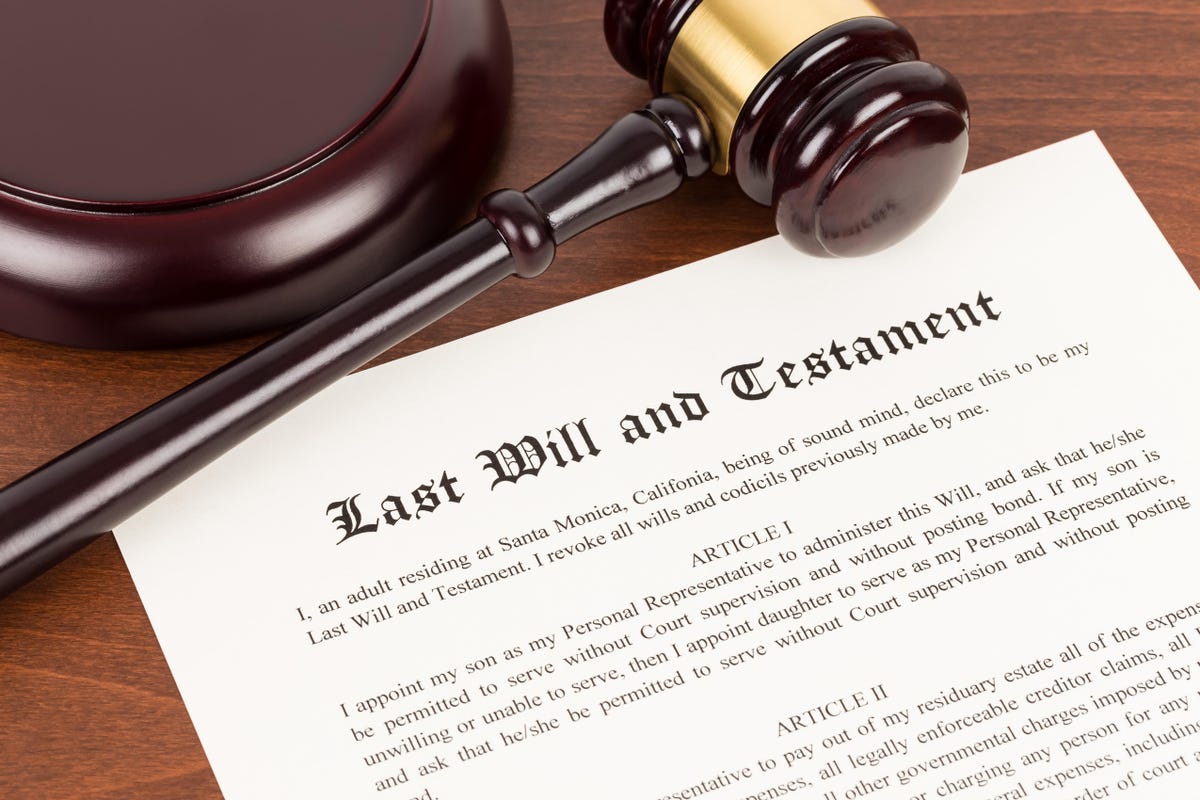Ignorance of state law, incapacity, undue influence, and fraud
You cannot challenge or contest a will simply because you disagree with its terms. There are four legal reasons for a will contest throughout most states, and proving any one of them can be difficult. In many cases, this entails a significant financial outlay, but if one of these four reasons for a contest exists, a last will and testament can be invalidated.
It is not a simple matter of invalidating a single provision. The entire will is effectively null and void, and the estate proceeds as if the decedent had never left a will at all.
The Will Was Not Signed In Compliance With State Laws
How to Sign a Last Will and Testament varies by state. In Florida, for example, the will must be signed in the presence and hearing of at least two witnesses by the testator (the person who created and is leaving the will). The testifier and the witnesses must both be present in the same room simultaneously, and each should sign the will in the presence of the others.
It's common to believe that a will executed in an estate lawyer's office will be signed in accordance with legal requirements, but this isn't always the case. The failure to sign a will in accordance with applicable state laws is the first and foremost reason for a will to be contested, and it is also the most common reason for a will to be found invalid.
The testator lacked testamentary capacity to carry out his will
The term "testamentary capacity" refers to the testator's understanding of the nature and value of her "bounty" or assets and the natural objects of that bounty—those who should logically inherit her assets. She must comprehend the legal implications of signing a will.
The threshold that must be met to prove that a testator lacked testamentary capacity is set by state law, which isn't usually very high. For example, in some states, a person can show signs of dementia while still being regarded as having the testamentary capacity to sign a will. Even though her memory and mind fail her in other areas, she understands the essential details.
In cases like this, the testimony of the witnesses to the will signing is crucial. Lack of testamentary capacity is extremely difficult to prove in the absence of a doctor's visit or adjudication of incapacity within days of them will be signing.
Unreasonably Influenced the Testator
People become physically and mentally weaker as they age, making them more vulnerable to the influence of others. The key question in determining undue influence in a will contest is whether the alleged influencer exerted such extreme pressure and placed the testator under such severe duress that he lost his free will and instead succumbed to the influencer's will.
Nagging, threats and verbal abuse alone do not constitute undue influence. Proving it usually entails actions such as consulting with the testator's attorney about the will's provisions, acquiring the will, and isolating the testator from his family and friends.
Undue influence, like lack of testamentary capacity, is difficult to establish.
Fraud was used to procure the will
A will obtained through fraud is one in which the testator is duped into signing. For example, the testator may be handed a document and informed that it is a deed or a power of attorney. As a result, she signs it, but it turns out that the document is a will. Thus, the will is obtained through deception.
It often goes hand in hand with testamentary capacity because most people would review the document to some extent before signing, but fraud is a separate ground for a contest.
The difficulty in proving that a will was obtained through fraud is that the testator cannot be interrogated about what he believed he was signing, which is where state laws come into play. The witnesses must be interrogated about what they thought the testator was signing.
The will may be declared invalid if the testimony of the witnesses does not add up, but this is more likely because it was not properly signed, not necessarily because it was obtained through fraud.
Do You Want to Challenge a Loved One's Will?
In the absence of outright lies and misdoing on the part of numerous people or explicit medical evidence that the testator was incompetent at the time the will was signed, proving the invalidity of a will can be difficult and costly.
Questions and Answers (FAQs)
How much time do you have to contest a will?
A will can frequently be challenged before it is admitted to probate. When a will is granted probate, the time limit for contesting it varies depending on the state. In California, for example, after a will is admitted to probate, you have 120 days to contest it.
In Virginia, you could have up to a year. In some cases, such as for minors or incapacitated people during the initial time frame, the period may be extended.
What is the cost of contesting a will?
To contest a will, you must hire an attorney, so the cost will be determined by your attorney's fees and any court fees that you must pay. It will also be determined by how long the process takes. Contesting a will is often a time-consuming and costly process.
Who has the authority to challenge a will?
Only those with a vested interest in the will and who would be personally or financially harmed by its terms have the legal right to contest it. It can include heirs-at-law or previous heirs who were disinherited when the will was changed.

